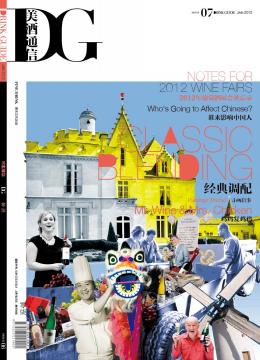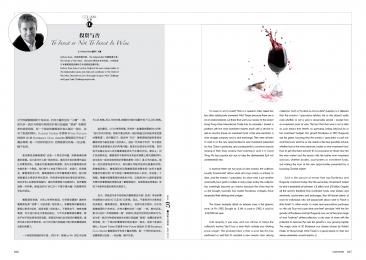To Invest or Not to invest in Wine
POSTED ON 13/01/2012 Fine Drink China
Fine Drink China
To invest or not to invest? That is a question often asked but less often
satisfactorily answered. Why? Simply because there are a lot of vested interests out there that want your money. At the recent Hong Kong Wine International Trade Fair, for example, I shared a platform with five wine investment experts each with a service to sell: an auction house, an investment fund, a fine wine merchant, a wine storage company and a wine exchange. They were all keen to cash in on the new opportunities for wine investment presented by Asia, China in particular, and consequently to convince anyone looking in their shop window that investing in wine is A Good Thing. My less popular job was to take the disinterested (but not uninterested) view.
In essence there are two kinds of wine investor, the collector (usually ‘passionate’ about wine) who buys mainly or entirely to drink, and the investor / speculator, for whom wine is just another commodity, be it gold or coffee. In many cases today, the collector has unwittingly become an investor because the wines that he or she bought, typically from earlier Bordeaux vintages, have exceeded their drinking wine budget. The classic example, albeit an extreme case, is the glamour wine, Le Pin 1982. Bought at £146 a case in 1983, it sold for £52,000 last year. Until recently, it was wise, and can still be, to follow the collector’s mantra: ‘don’t buy a wine that’s outside your drinking price range’. The problem here is that a wine like this has performed so well that it’s created a new investor class among collectors.
Such a ‘to-drink-or-not-to-drink’ question is a dilemma that the investor / speculator relishes. He or she doesn’t really care whether or not a wine is reasonably priced – except from an investment point of view. The fact that that wine is not a drink as such means that there’s no spending ceiling beyond his or her investment budget. First growth Bordeaux or DRC Burgundy are fair game. Assuming that the investor / speculator is cash rich and time poor, what he or she needs is the best possible advice, whether from a fine wine merchant, broker or wine investment fund. How to get that best advice? It’s a conundrum for those new into the wine market and the reason why the better wine investment advisors, whether brokers, auctioneers or investment funds, are making the most of the new opportunities presented by a booming Chinese market.
Such is the amount of money that top Bordeaux and Burgundy command today that the secondary (investment) market for wine is estimated at between £6 billion and £8 billion. Despite all the activity therefore from investment funds, wine brokers and merchants, auctioneers and exchanges, that still leaves plenty of room for individuals who are passionate about wine to ‘have a little flutter’. In other words, to make semi-speculative purchases on the old ‘buy-two-case-drink-one-free’ principle. With the first growths of Bordeaux and top Burgundy now out of the price range of most ‘ordinary’ drinker-collectors, a sub-class of wines with the potential to become the next first growths is now growing rapidly. The magic circle of 20 Bordeaux crus classés chosen by Robert Parker at Hong Kong’s Wine Future is a good place to start , but always remember: caveat emptor.
 To Invest or Not to invest in Wine
To Invest or Not to invest in Wine

